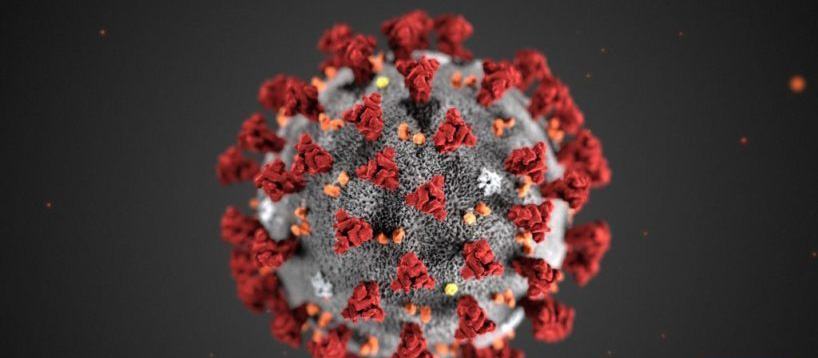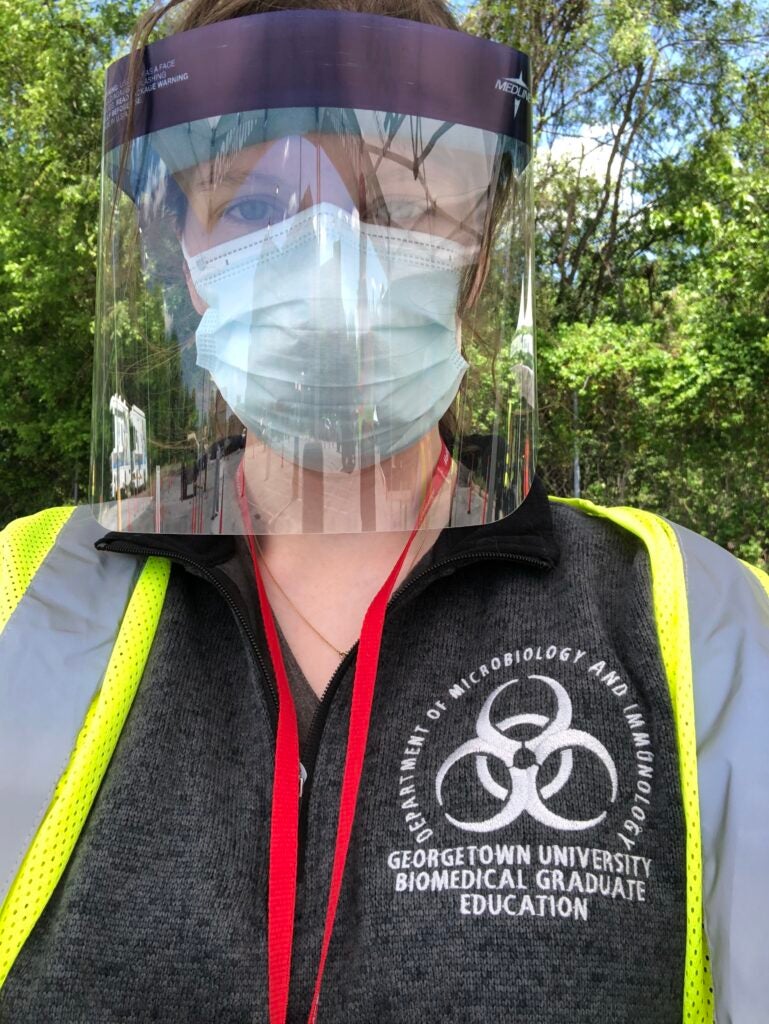More Career Advice
Learn from faculty, staff, postdocs, students and alumni through our Career Catalyst blog.
Career Catalyst
By Suzie Stephenson
PhD Candidate in Microbiology & Immunology

I’ve always wondered how I would react in a time of need – would I sit back and let others handle it or would I jump into the fray and do what I could to help. When the Stay at Home Order was given and I could no longer do my lab work as a 3rd year PhD student in the Department of Microbiology and Immunology at Georgetown, I realised that I had been presented with the very situation I had always wondered about. My PhD work has been focused on Hepatitis Delta Virus, an RNA virus which requires the ability to work with RNA and perform RNA extractions, PCR, qRT-PCR, and more. Since these very same methods were being used to test for SARS-CoV-2 infection, I figured I could be of help with the coronavirus testing. So, I researched and contacted various health departments and public health labs in the DMV area until I heard back from the DC Department of Forensic Sciences Public Health Laboratory (DC PHL). After a couple of weeks configuring my position in the department, getting fingerprinted, and completing a background check and onboarding steps, I finally started my first day as a DC Public Health Lab (PHL) Research Intern.
As a Research Intern, it was my duty to help the DC PHL with whatever they needed, which ended up exposing me to an enriching spectrum of responsibilities! At first, I did research into the different methods of antibody testing that had been given Emergency Use Authorization (EUA) by the FDA so that the PHL could decide which antibody test to employ in DC. I was able to do the research thanks to my classes at Georgetown, which taught me where to find papers, how to critically read them, and how to synthesize the information I had gathered.
My next job was performing quality assurance at the various Drive Through Testing Sites that were jointly run by the Department of Health and the DC PHL. This involved donning full PPE and making sure that the tests were being gathered correctly, stored correctly and transported to the DC PHL for testing in a safe and timely manner. My time in the lab as a PhD student was particularly helpful for this, as I leveraged my knowledge of RNA handling. I also showcased my ability to manage and teach people, which I had learned by helping the various undergraduate and master’s students in my lab.
My final job was in the lab at the PHL, in both the Accessioning and the Immunology and Virology Units, where intake of the test samples and testing of the samples were done, respectively. My time in the lab as a PhD student greatly helped for intake as the most important step was quality assurance, where having a keen eye for mistakes and the ability to handle many samples was important.These were qualities I had employed many times over while performing experiments in my lab. My PhD training also conferred expertise to handle the biosafety aspect of the testing and to perform RNA extraction and PCR.
My time at the Public Health Lab was certainly aided by many aspects of my time at Georgetown, but it also taught me much. In general, I learned how laboratories work in a crisis and I learned invaluable people management skills. At the testing sites, I learned that the impersonal samples I work with in the lab can come from real people, which is something that I feel is important for laboratory researchers to understand. Furthermore, in the PHL lab, I learned how important it is to have good quality assurance and a tight workflow.
Interning at the DC Public Health Lab was the perfect way to spend my quarantine, as it allowed me to gain invaluable insights while helping with the SARS-CoV-2 response in DC. If you want to use your knowledge to help with the SARS-CoV-2 response, I recommend researching what opportunities are available in your area, as many agencies and departments are recruiting people with virology, microbiology, public health, epidemiology, molecular biology or even just general laboratory knowledge. I also recommend reaching out to several public health laboratories and health departments to see if they can utilize your expertise, and to keep looking if the first places you reach out to aren’t interested. I reached out to four different places before I heard back from the DC Public Health Lab. Lastly, I recommend being flexible. I joined the PHL thinking I would be solely in the lab, but I spent many days out at the testing sites, and I gained knowledge and insights that I wouldn’t have gained working just in the lab. You could even sign up for the DC or Virginia Medical Reserve Corps, which have people doing contact tracing, intake at the testing sites, and many other important jobs that are necessary to combat the coronavirus pandemic.
Biography
Suzie Stephenson is going into her 4th year of her PhD at Georgetown University. She is working on Hepatitis Delta Virus replication in the lab of Dr. John Casey in the Department of Microbiology and Immunology. More specifically, she is interested in the interaction of Hepatitis Delta Virus RNA with host RNA Polymerase II, focusing on the ability of the RNAPII to initiate on the viral circular RNA. When not in the lab, she enjoys going on walks with her husband and two adorable goldendoodles and sampling the local dog-friendly restaurants.
Learn from faculty, staff, postdocs, students and alumni through our Career Catalyst blog.
Career Catalyst